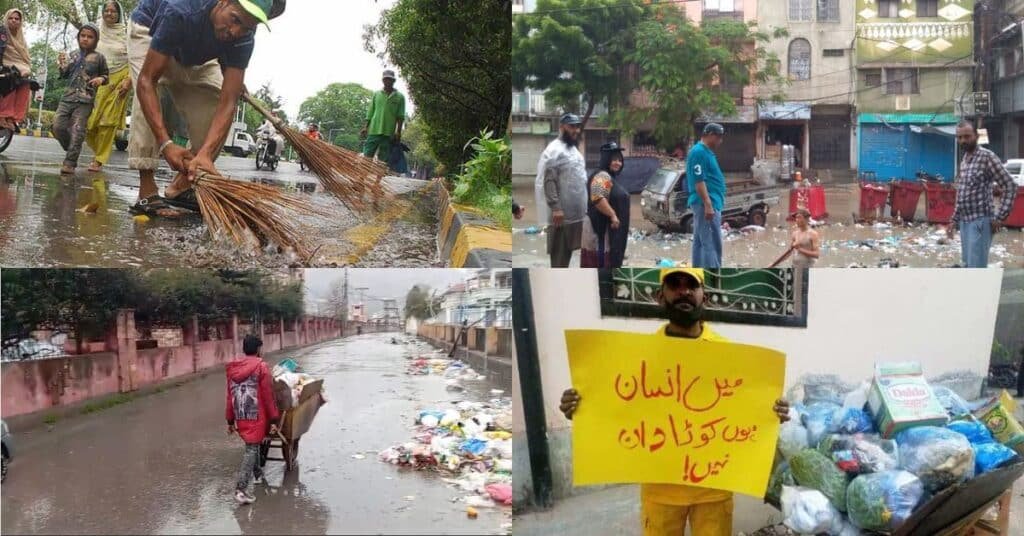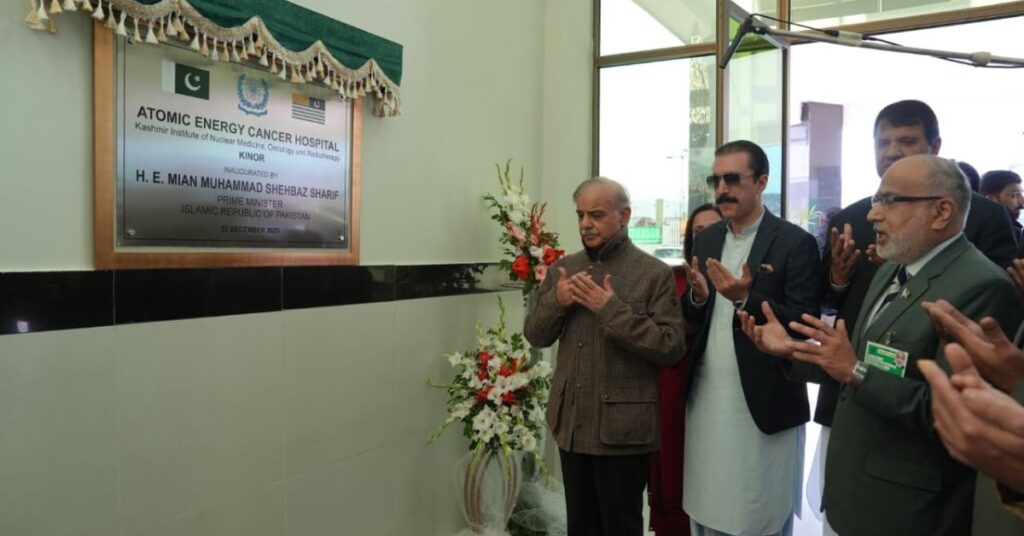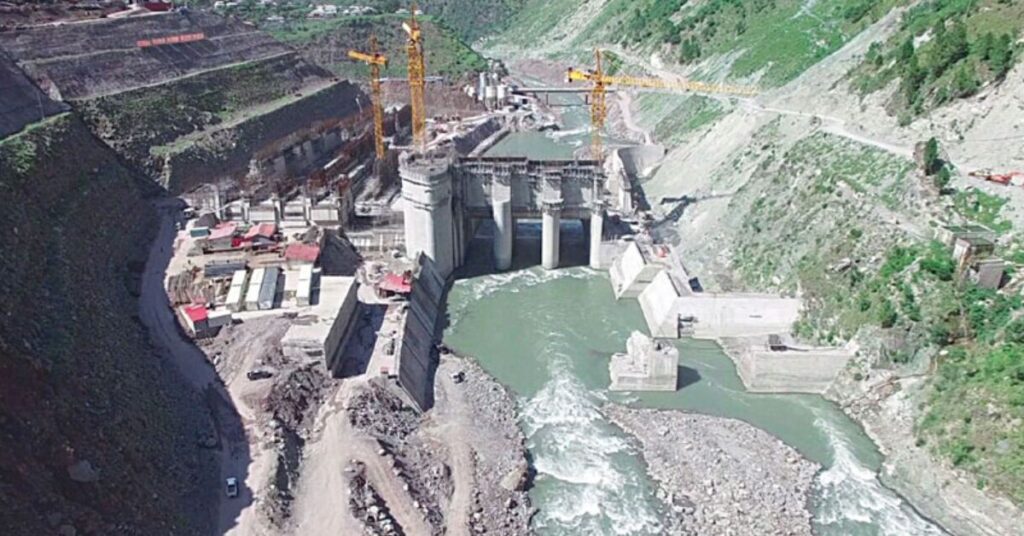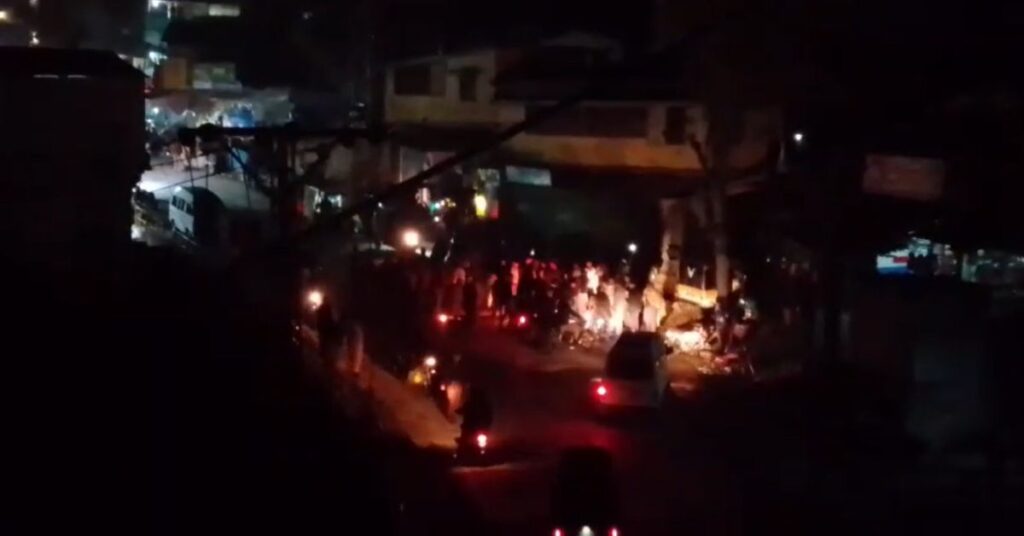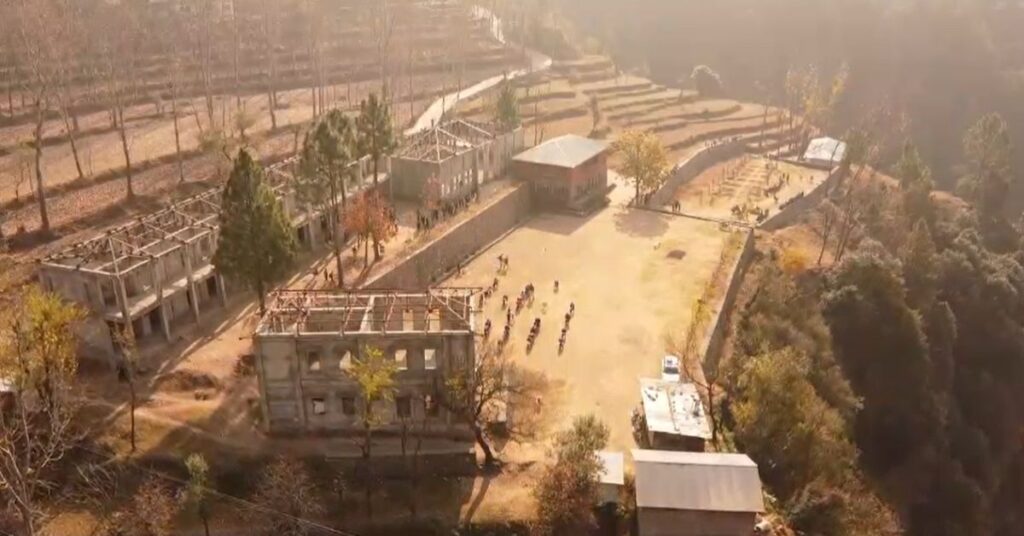MUZAFFARABAD (Kashmir English): Sanitation workers in Muzaffarabad, Azad Jammu and Kashmir (AJK) continue working despite heavy rainfall, unpaid salaries for months, and no protective gear, highlighting their struggles and official neglect.
Amid harsh weather conditions and persistent rain, one group of workers remains steadfast in their duties; the sanitation workers. Despite facing extreme challenges, these individuals continue to carry out their responsibilities, ensuring the cleanliness of the city. While many seek shelter from the downpour, these workers remain on the streets, committed to their jobs without the necessary protective gear or official support.
Unfortunately, these workers, who are employed by various municipal departments, often go months without receiving their salaries. Multiple reports suggest that some sanitation workers have not received payment for half a year but still complete their responsibilities passionately. Urban sanitation would not function without employees, yet these workers fail to receive proper recognition, along with any help from the government.
Recent heavy rainfalls demonstrate once again how strong the street cleaners are. During wet and cold weather conditions, the city workers maintain street cleanliness, though most citizens stay inside their homes. These workers conduct their duties without the benefit of protective gear, along with suitable rainwear or institutional support for protecting themselves against inclement conditions.
Their difficult situation worsens when they lack the necessary work equipment while being without financial support. These workers must endure health and physical discomfort because they have no protective clothing or gloves, but they continue their work. Their dedication to maintaining their job performance against these difficult circumstances makes the authorities’ behaviour toward them questionable.
The workforce section, which includes sanitation worker, maintains public hygiene alongside health, but faces continuous neglect from their employers. The essential survival needs of workers need fast intervention from responsible officials because of their ongoing wage delay issue and their lack of protective equipment.
It is essential that those responsible for their employment address these pressing issues. Timely payment of salaries, provision of protective gear, and better working conditions should be prioritised to ensure that these workers are not forced to endure such hardships while performing an essential public service.
